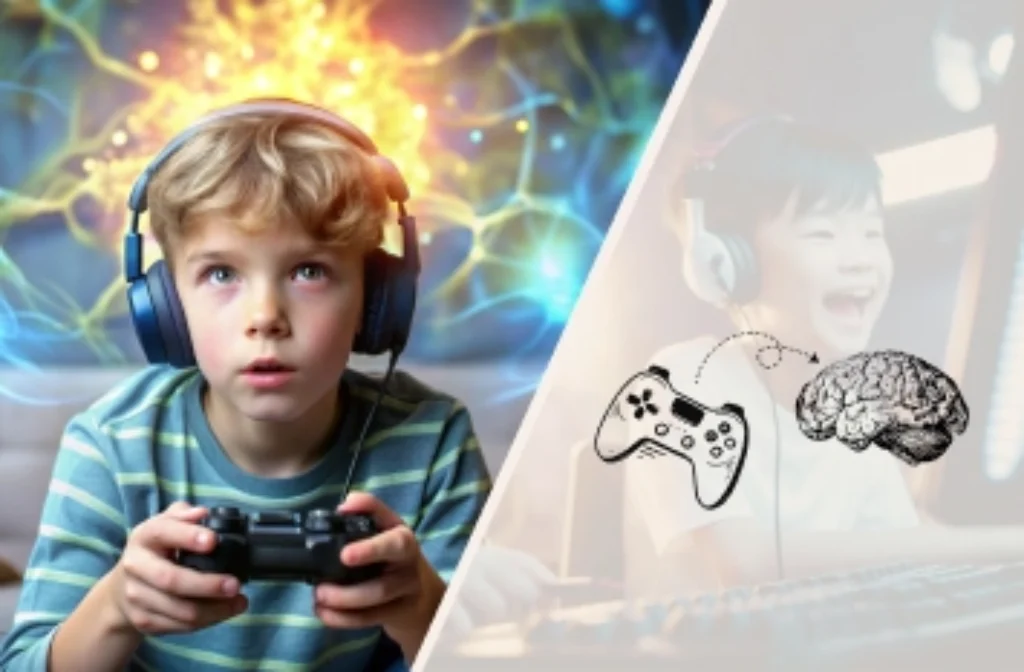
Video Games and Emotional Resilience: What the Research Says
In recent years, the relationship between video games and emotional resilience has been a topic of growing interest. While video games are often criticized for promoting violence or addiction, emerging research suggests that they can play a significant role in developing emotional resilience. Emotional resilience refers to an individual’s ability to adapt to adversity, overcome challenges, and bounce back from difficult situations. Video games, particularly those that involve complex narratives, challenging gameplay, or cooperative elements, are increasingly being recognized for their potential to enhance emotional resilience.
The Role of Challenge in Video Games
One of the key features of many video games is the challenge they present. Whether it’s overcoming a tough boss fight, solving intricate puzzles, or navigating complex in-game scenarios, these challenges require players to persist, strategize, and adapt in the face of failure. According to research, engaging with challenging video game mechanics can help individuals build emotional resilience by teaching them to cope with frustration and persevere through failure.

A study conducted by the American Psychological Association (APA) found that video games, especially action-adventure games, provide players with opportunities to develop coping strategies and enhance their problem-solving skills. By repeatedly encountering and overcoming in-game obstacles, players may become better at managing stress, frustration, and emotional setbacks in real life. The sense of achievement that comes from completing difficult levels or missions can boost confidence and promote a sense of accomplishment, reinforcing the idea that persistence pays off.
The Importance of Narrative in Emotional Resilience
Another way in which video games can contribute to emotional resilience is through their compelling narratives. Many games today feature intricate stories with emotionally complex characters, where players are required to make tough decisions that impact the outcome of the game. These narratives often explore themes of loss, sacrifice, hope, and redemption—situations that mirror real-life emotional challenges.
According to a study published in the Journal of Media Psychology, narrative-driven video games have been shown to improve emotional well-being by providing players with a sense of agency and emotional investment in the story. As players navigate these emotional journeys alongside their in-game characters, they can develop a better understanding of their own emotions and how to process them. The emotional connection players form with characters who face adversity can serve as a form of vicarious emotional experience, helping them develop empathy and resilience in their own lives.
Games like The Last of Us, Life is Strange, and Hellblade: Senua’s Sacrifice are prime examples of how video games use narrative to explore deep emotional themes. These games not only engage players on an intellectual level but also help them develop a greater understanding of complex emotional responses, including grief, trauma, and recovery.
Social Interaction and Support: Multiplayer Games and Community
In addition to solo experiences, multiplayer games provide a platform for social interaction and emotional support, which can also contribute to emotional resilience. Many video games offer cooperative or competitive gameplay that requires teamwork, communication, and empathy. Games like Overwatch, Fortnite, Minecraft, and World of Warcraft encourage players to work together to achieve common goals, which can foster a sense of community and emotional connection.
Research has shown that social interaction in multiplayer games can improve emotional resilience by promoting positive social engagement and reducing feelings of isolation. A study published in Cyberpsychology, Behavior, and Social Networking found that players who engage in multiplayer games with friends or online communities report feeling more socially supported and less stressed. The shared experiences of overcoming in-game challenges together can build trust and camaraderie, which in turn enhances emotional resilience by providing players with a support system they can lean on.
Furthermore, multiplayer games often involve navigating social dynamics, such as handling conflicts or working together toward a shared objective. These situations require emotional regulation, communication, and adaptability, all of which are crucial components of emotional resilience. Learning how to cope with in-game losses, deal with difficult teammates, or support others during tough moments can translate into improved emotional intelligence and resilience in real-world situations.
The Role of Game Design in Building Resilience

The way a video game is designed can also influence its ability to help players build emotional resilience. Games that offer a balance of challenge and reward, as well as opportunities for self-reflection, can promote resilience more effectively. For example, games that allow players to fail and try again without significant penalties encourage a growth mindset, where players learn that mistakes are part of the learning process. This approach helps players develop a healthy attitude toward failure and teaches them how to bounce back from setbacks.
Moreover, games with adjustable difficulty levels can cater to a wide range of players, allowing individuals to challenge themselves at their own pace. This flexibility ensures that players can gradually build their emotional resilience, taking on more complex challenges as they improve their skills and confidence.
Conclusion: The Positive Impact of Video Games on Emotional Resilience
While video games are often viewed through a critical lens, research increasingly shows that they can have positive effects on emotional resilience. Whether it’s through the challenges they present, the emotional depth of their narratives, or the social connections they foster, video games can serve as a powerful tool for developing skills that help individuals cope with adversity, manage stress, and build emotional strength. As the gaming industry continues to evolve, it’s likely that more games will explore these themes, further enhancing their potential to promote emotional well-being.
Of course, like any form of media, moderation is key. It’s important to balance gaming with other activities and responsibilities. However, when used thoughtfully, video games can be an enjoyable and effective means of building emotional resilience, helping players navigate both in-game challenges and real-world obstacles with greater confidence and emotional strength.








